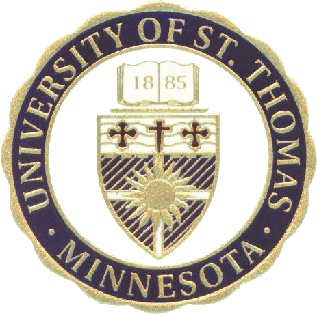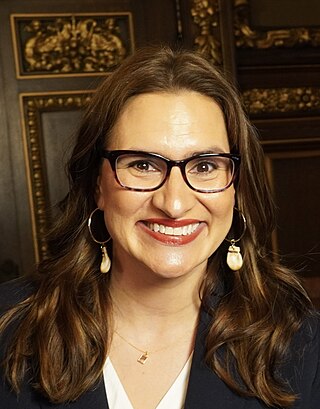
The National Indian Education Association (NIEA) is the only national nonprofit exclusive to education issues for American Indian, Alaska Native, and Native Hawaiian people of the United States.

The National Indian Education Association (NIEA) is the only national nonprofit exclusive to education issues for American Indian, Alaska Native, and Native Hawaiian people of the United States.
In March 1969, Sparlin Norwood, Cherokee, a teacher at Central Junior High School in Bartlesville, Oklahoma, organized a National Conference of Indian teachers at the Warm Springs Indian Reservation in Oregon, as part of his National Education Association position.
In 1969, Rosemary Christensen organized a National Conference on Indian education as part of her work at the Upper Midwest Regional Educational Laboratory (UMREL) located in Minneapolis. The planning committee members were primarily from the greater Minneapolis area but the participants came from different parts of the country and agreed that such a conference should be held again. At the conclusion of this first conference Christensen was asked by the Minnesota group to discuss the idea of national organization of Indian educators while at the Convocation of American Indian Scholars, held at Princeton University, March 1970.
Jeannette Henry Costo and Rupert Costo, with a Ford Foundation grant, helped plan the First Convocation of American Indian Scholars. [1] This brought together a mix of Indian educators that were actively involved in the education of Native students in elementary, secondary schools, and university programs. Sparlin Norwood, William Demmert, and Rosemary Christensen attended this conference. The mix of Indian educators found a common interest and formed a discussion group to consider future activity that would bring them together periodically to address national Indian education issues and to learn from each other. The leading organizers of this discussion group included Sparlin Norwood, Hershal (Ace) Shamant, Marigold Linton, Rosemary Christensen, John Winchester, Liz Whiteman, Dillon Platero, and William Demmert and Ned Hatathli, who would all become members of the first "National Indian Education Association" Board of Directors. There were other participants that participated as observers and discussants including George Scott, Carl Downing, Sam Billison, Lee Antell and several others.
This group decided on being an independent organization, and chose "National Indian Education Association" (NIEA) as the name under which it would be incorporated. Rosemary Christensen was assisted by Gordon J. Amundson to file papers for incorporation. The officers, the board members, and other organizational requirements were carried out at the 1970 National Indian Education Association Conference.
The NIEA was incorporated on August 21, 1970 (File number 1646) in Minneapolis, Minnesota. [2] The original signatures of the incorporation papers were Rosemary Christensen, Elgie Raymond, and Will Antell.

The American Indian Movement (AIM) is an American Indian grassroots movement which was founded in Minneapolis, Minnesota in July 1968, initially centered in urban areas in order to address systemic issues of poverty, discrimination, and police brutality against American Indians. AIM soon widened its focus from urban issues to many Indigenous Tribal issues that American Indian groups have faced due to settler colonialism in the Americas. These issues have included treaty rights, high rates of unemployment, the lack of American Indian subjects in education, and the preservation of Indigenous cultures.

The first modern Farmer–Labor Party in the United States emerged in Minnesota in 1918. The American entry into World War I caused agricultural prices and workers' wages to fall, while retail prices rose sharply during the war years. Consequently, farmers and workers made common cause in the political sphere to redress their grievances.

The University of St. Thomas is a private Catholic research university with campuses in St. Paul and Minneapolis, Minnesota. Founded in 1885 as a Catholic seminary, it is named after Thomas Aquinas, the medieval Catholic theologian and philosopher who is the patron saint of students. As of fall 2021, St. Thomas enrolled 9,347 students, making it Minnesota's largest private, nonprofit university.

Maria Louise Sanford was an American educator. She was a professor of history at Swarthmore College from 1871 to 1880 and a professor of rhetoric and elocution at the University of Minnesota from 1880 to 1909.

Education Minnesota is an American trade union representing pre-K to 12 education teachers, school support staff and higher education faculty in Minnesota. It is affiliated with both the National Education Association (NEA) and the American Federation of Teachers (AFT), and is affiliated with the AFL-CIO.
Native American studies is an interdisciplinary academic field that examines the history, culture, politics, issues, spirituality, sociology and contemporary experience of Native peoples in North America, or, taking a hemispheric approach, the Americas. Increasingly, debate has focused on the differences rather than the similarities between other Ethnic studies disciplines such as African American studies, Asian American Studies, and Latino/a Studies.
The Honeywell Project was a peace group based in Minneapolis, Minnesota, United States that existed from the late 1960s until around 1990. During its existence, the organization waged a campaign to convince the board and executives of the Honeywell Corporation to convert their weapons manufacturing business to peaceful production.
The Nazarene International Education Association (NIEA) is now called Nazarene Educators Worldwide(NEW) and is a part of the Church of the Nazarene. The Church of the Nazarene owns and operates 11 liberal arts institutions in Africa, Canada, Korea, and the United States, as well as 3 graduate seminaries, 37 undergraduate Bible/theological colleges, 3 nurses training colleges, 1 junior college, and 1 education college worldwide. At least in terms of the American institutions, the Church of the Nazarene seems to have changed its original official philosophy of abandoning academies, bible colleges, and universities to focus on liberal arts colleges, as 7 of the 8 "liberal arts colleges" call themselves universities, and there is now a bible college in Colorado Springs. The early-twentieth-century philosophy, as expressed by J.B. Chapman:
It was originally the plan to call every school we started a “university” ... It was our ultimate aim to have universities and our schools were named according to our vision of future developments. But I am, personally, convinced that we should definitely abandon the idea of building any universities, that we should drop these names from our schools... [Moreover,] it is my conclusion that we ... cannot permanently maintain academies and they do not meet our need, that a special Bible school does not meet our needs and that we should express ourselves on this conviction.... That the College, with the necessary fitting school and Bible department[,] is the school that we need and will build."
The Trail of Broken Treaties was a 1972 cross-country caravan of American Indian and First Nations organizations that started on the West Coast of the United States and ended at the Department of Interior headquarters building at the US capital of Washington, D.C. Participants called for the restoration of tribes’ treaty-making authority, the abolition of the Bureau of Indian Affairs, and federal investment in jobs, housing, and education.

Chicano/a studies, also known as Chican@ studies, originates from the Chicano Movement of the late 1960s and 1970s, and is the study of the Chicana/o and Latina/o experience. Chican@ studies draws upon a variety of fields, including history, sociology, the arts, and Chican@ literature. The area of studies additionally emphasizes the importance of Chican@ educational materials taught by Chican@ educators for Chican@ students.
Marigold Linton is a cognitive psychologist and member of the Morongo Band of Cahuilla Mission Indians. In 1964, she became the first Native American to earn a doctorate in psychology. In 1974, she co–founded the National Indian Education Association. Her research in long-term memory is widely cited in psychology. She is director for mathematics and science initiatives in the University of Texas system, where she is responsible for bringing minority students into those two fields. She has been president of the Society for Advancement of Chicanos and Native Americans in Science.
The Labor and Working-Class History Association (LAWCHA) is a non-profit association of academics, educators, students, and labor movement and other activists that promotes research into and publication of materials on the history of the labor movement in North and South America. Its current president is James Gregory, professor of history at University of Washington.
Pan-Indianism is a philosophical and political approach promoting unity, and to some extent cultural homogenization, among different Indigenous groups in the Americas regardless of tribal distinctions and cultural differences.
Rupert Costo was a Cahuilla writer, activist, publisher, and philanthropist. He was a co-founder of the American Indian Historical Society (AIHS) and the Indian Historian Press publishing company. Costo had many careers and avocations throughout his life, including farmer, cattle rancher, surveyor, and mineralogist. He also served as an engineer for the California Division of Highways for nearly 20 years.

Peggy Flanagan is an American politician, community organizer, and Native American activist serving as the 50th lieutenant governor of Minnesota since 2019. A member of the Minnesota Democratic–Farmer–Labor Party (DFL), Flanagan served in the Minnesota House of Representatives from 2015 to 2019.
Gay American Indians (GAI) was a gay rights organization founded in San Francisco in 1975 by Randy Burns and Barbara May Cameron. It was notable for being the first association for gay Native Americans in the United States. Although initially a social group, GAI became involved in AIDS activism and the promotion of the Two-Spirit concept and community.
Cheryl Metoyer is an Eastern Band Cherokee researcher and professor of library and information science. Her research is focused on Indigenous systems of knowledge, especially in relation to American Indian and Alaskan tribal nations, as well as ethics and leadership in cultural communities. She holds the position of Associate Professor Emeritus and the Director of the Indigenous Information Research Group (IIRG) at the iSchool at the University of Washington.
The National Native American Boarding School Healing Coalition (NABS) is a nonprofit created in June 2012. It is composed of more than eighty organizations that are dedicated to healing Native American communities affected by Indian Boarding Schools in the United States.
Jeannette Henry Costo (1908–2001) was an American activist, author, editor, and journalist. She co-founded the American Indian Historical Society (AIHS), and the Indian Historian Press publishing company.
John Emhoolah Jr. was a Kiowa activist known for his work on Native American education in the Seattle and Denver areas.